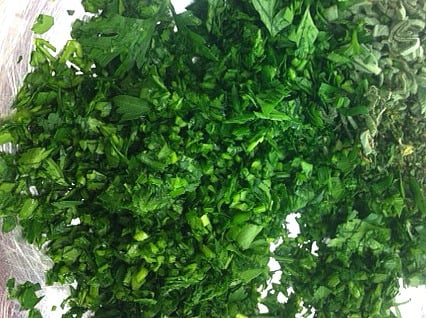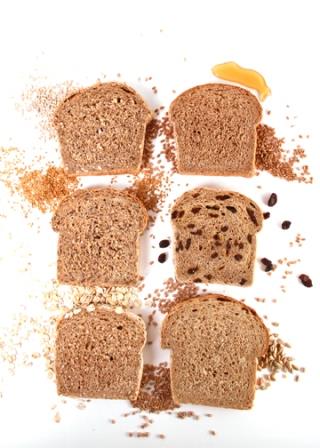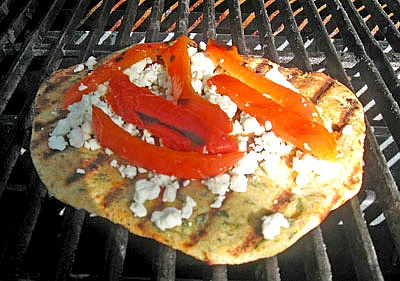1. When cooking, cut the amount of salt in your recipe in half. If you feel you need to add a little extra after taking the first bite, you can use the salt shaker. A lot of times, you will get just as much flavor from the food without all of the added sodium.
2. Add beans, soybeans, lentils, nuts, seeds, and quinoa as alternative sources of protein in your meal. These super foods will also provide you with antioxidants, healthy fats, and fiber.
3. Use oils that are liquid at room temperature such as olive or canola oil which are monounsaturated fatty acids and can lower total or LDL (bad) cholesterol and improve HDL (good) cholesterol.

4. Season and cook your food with herbs, pepper, garlic, onions, peppers, lemon, and lime juice instead of high fat and sodium laden marinades and sauces.
5. Supplement salads, cereal, oatmeal, and muffins with healthy nuts such as walnuts or sliced almonds for a heart healthy addition to your meals and snacks.

6. Incorporate whole grains such as quinoa, amaranth, millet, brown rice, whole grain pasta, hot cereal or whole grain breads into your breakfast, lunch, dinner, or even snacks. Whole grains are a great way to incorporate fiber, B vitamins including folate, and their own unique set of phytochemicals into any meal.
7. Make the switch to reduced fat or part skim cheeses in recipes. The simple switch doesn’t sacrifice flavor when used in a recipe and can save you on cholesterol, saturated fat, and calories.

8. Choose grilling, baking, broiling, roasting, stewing, or stir frying which rely on the cooking method to bring out flavors in foods.
9. Buy and use frozen fruit and vegetables. Frozen produce is often just as tasty and equally nutritious as the fresh version. You can buy these without the fear of having them spoil before you use them, plus they are already chopped and ready to be cooked in minutes.
10. Steam vegetables instead of boiling. Boiling leaches nutrients out of the veggies and into the water, while steaming rapidly cooks the food and leaves the nutrients intact within the vegetables. If you must boil, save the nutrient rich water and use it as a base for soup.




